Recently, I was given the opportunity to visit two BC Egg Farms on the Mainland (Abbotsford, to be precise) and given a tour with a chance to speak directly to the farmers. BC Eggs took myself and another local blogger, Crystal Allen of Hello Creative Family, to Pine Grove Farm first. When we stepped out of the car and onto this free range farm, the first thing that surprised me was the sheer amount of land needed for this many chickens. Thousands upon thousands of chickens roaming freely in grassy pasture. As a backyard chicken farmer myself, it was a very cool thing to see this scale of egg farming. 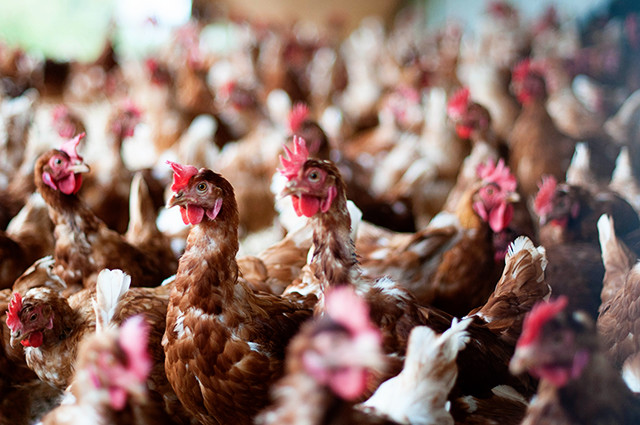
We met farmer Ralph Regehr, a second generation chicken and egg farmer who has lived his whole life on farms, taking over the skills his father passed down to him as a child. Ralph began Free Range farming in the ’90’s and is one of the first farms in BC to have this designation. His farm was well organized and clean and very advanced, technologically speaking. Ralph and his son have a computer system attached to every aspect of the chickens lives from their air, water, food and heat. Everything is monitored 24/7 and if something goes even slightly off kilter, Ralph and his son get alerted via their smart phones. 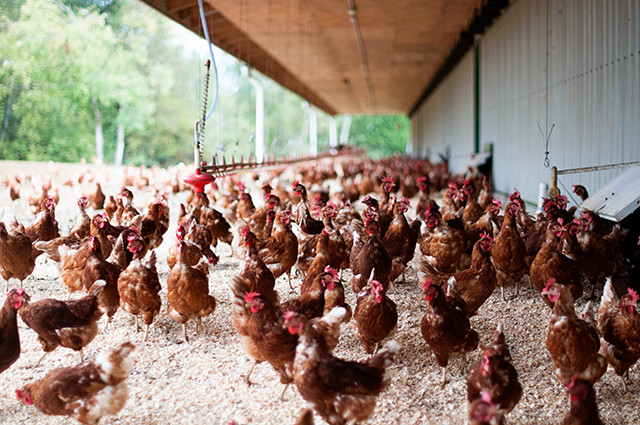
The chickens at this farm seemed happy and are allowed to perform the natural activities that chickens do such as scratching, pecking, flapping, running and of course, fighting. These chickens live their daylight hours with free access to the outdoors and a large barn with nesting boxes and roosts to be in during the night. Thier food is controlled inside the barn and they are free to eat whatever they can find outside. The one thing I did notice in this situation was the chickens lack of feathers on their heads and necks. These chickens, although free to roam with huge amounts of space during the day, do spend half their life in very cramped quarters inside the barn. There are thousands of chickens roosting and nesting together for 8-12 hours a night with no room between individuals, so naturally, they peck at each other. Overall, the chickens here were happy, healthy and well cared for and free to act as chickens want to.
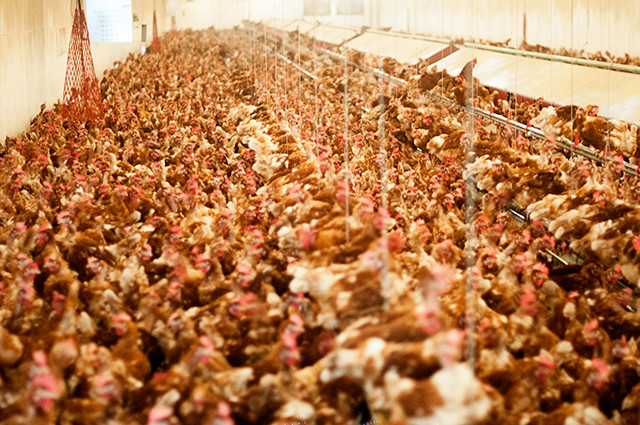
At Ralph’s farm, we were also shown a small grading room and the storage areas which contain an enormous amount of eggs each week. It is amazing to see the volume a small farm like this can produce.
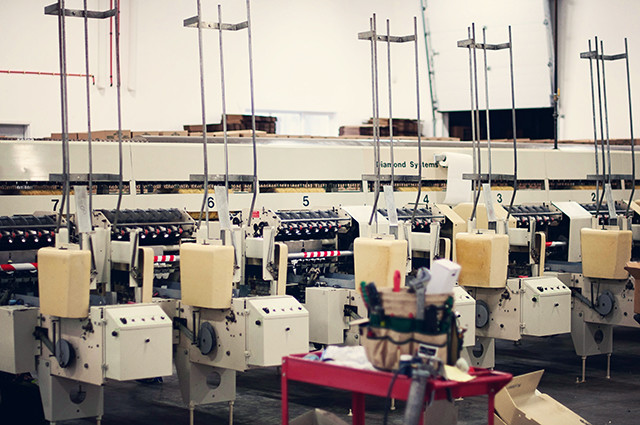
The Grader.
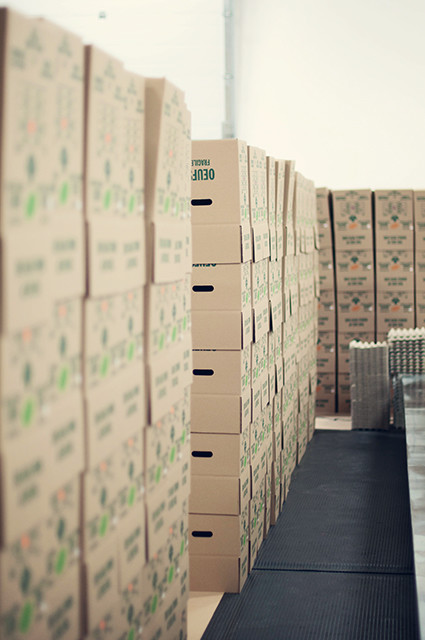
Check out Farmer Ralph in the video below, who was a very generous host and I can only hope more farmers are like him. He truly cares for the birds and runs a tight ship.
The second farm we visited was Kenetta’s Farm in Abbotsford where farmer John introduced us to a new style of egg farming that is popular in the UK but is just beginning to be seen here in North America, enriched egg production.
What are the differences in commercial egg production?
Free Run – Chickens raised in an open barn system without cages. No access to the outside. Roosts and nesting boxes provided but chickens are usually in cramped quarters for their whole lives. Also known as cage free eggs.
Free Range/Pastured – Chickens have free access to the outside and are also provided with barns that have roosts and nesting boxes.
Enriched – Small groups of chickens are raised in large cages inside barns where climate, feed and light are all controlled. Nesting boxes, scratch pads and roosts are also provided so the birds can have some natural behaviours.
What are the other designations on egg cartons?
Organic- Organic grain-based feed that is free from pesticides, antibiotics and hormones.
Omega 3 Enriched Eggs- Feed supplemented with a source of Omega-3 fatty acids, usually flax seeds.
Vegetarian Eggs- Vegetarian based feed that contains no meat or fish by-products. Protein source is usually soy-based. Chickens would not have access to pasture (as chickens are omnivores and will eat bugs when given the chance).
At Kenetta’s Farm, we were shown the newer practice of “Enriched” egg farming. Here, chickens are raised inside huge barns in large cages stacked on top of eachother. Every aspect of their lives is controlled to a dizzying degree. John was very adamant about the cleanliness of the birds, their cages, the air and even the ground between the cages. This barn was spotless and the air was very much breathable, a noticeable difference from the free-range barn where the overpowering smell of ammonia was prominent. If you’ve ever owned chickens, even just two of them, they smell, bad.
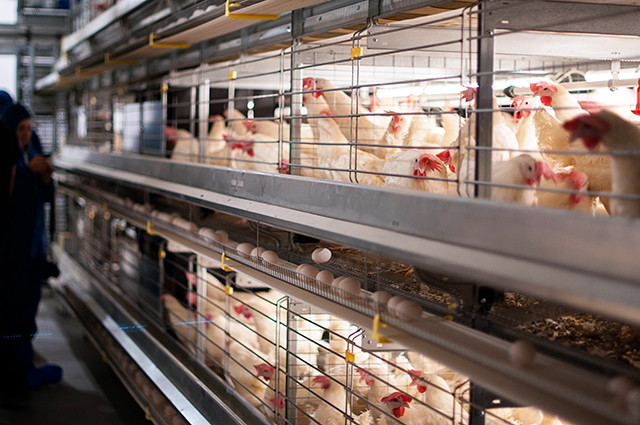
The amount of birds that can fit into these barns is incredible and the egg production was very cool to see in action. These chickens were curious, happy and very clean. They were also fully feathered. Personally, I think these chickens, overall, have more room to roam than the free range birds, as they are always in the same space. I believe there were 60 chickens in each 60 foot by 10 foot cage.
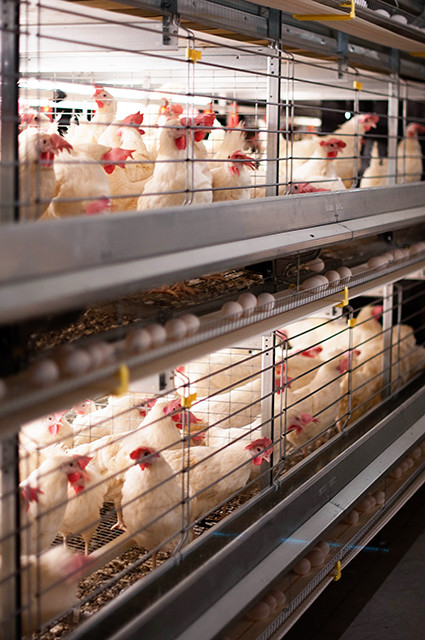
The biggest thing I learned on this tour with BC Eggs was that most farms, even on a large scale such as these are still family run operations. Many people see eggs and chicken and just see commercialism and big, faceless companies but you would be wrong to assume so. These farmers are just families producing our local food on a bigger scale to keep up with demand. Not everyone is lucky enough to have chickens in their backyard, or a friend with the same who can provide fresh eggs every week. Many people rely on these farmers to provide their food and I have to commend them on what they are doing. Each farmer, in his own way, is producing a product that they are proud to put their name on.
More people should make the effort to go out to these farms, or to look into where their food is actually coming from. Meeting the farmers was such a great opportunity for me and I hope more people are interested in making the effort to find out where their food comes from. I would be happy to buy eggs from either of these farmers anytime and I hope you would too.
See Crystal and I below and what we thought of the whole tour.
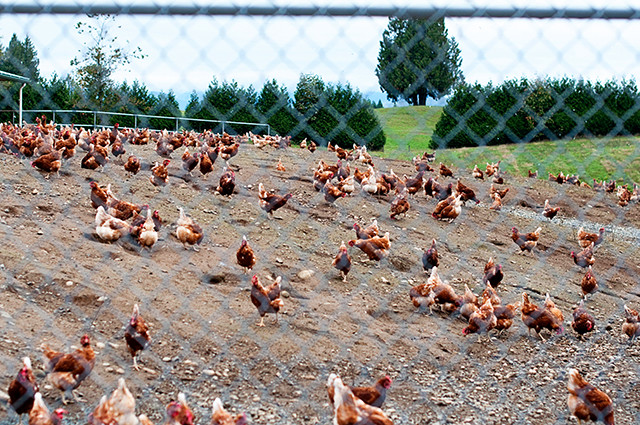
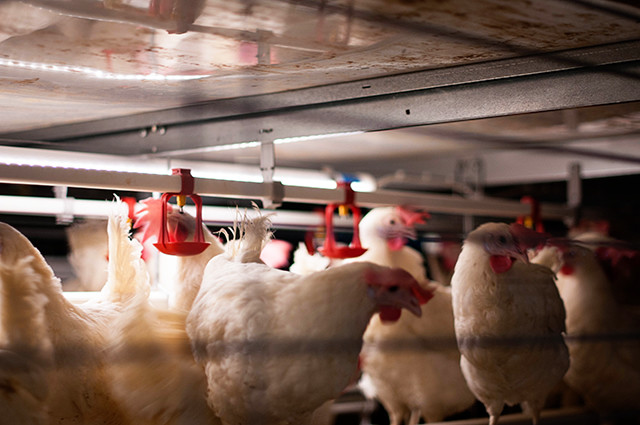




Nice article. Thanks. Of course, the definition of organic “Organic- Organic grain-based feed that is free from pesticides, antibiotics and hormones.” that organic marketeers use is total BS because all organic farming uses pesticides (natural but can be equally toxic or non-toxic as synthetic), all plants produce their own pesticides, and all animals contain hormones – and poultry are NEVER EVER given added hormones. Yes to the antibiotics but then one can discuss welfare…
Thanks for this article! I have been very interested in finding out how store bought eggs are raised. I do try to buy local, when I can, however, this make me feel better about buying BC store bought eggs when I can’t. I just discovered your blog now and am bummed that you don’t seem to be doing it any more. There aren’t too many Canadians, in my Province no less! that have good, interesting, blogs. Oh well, I’ll read all your old posts:)